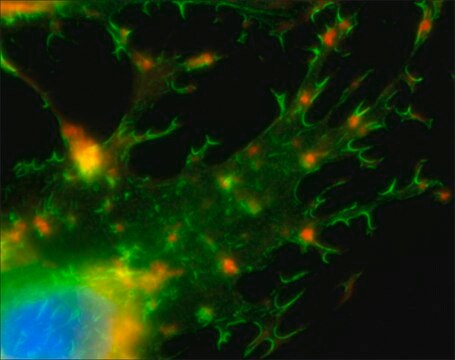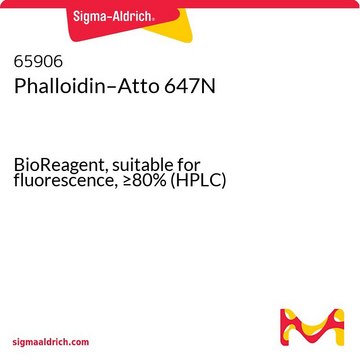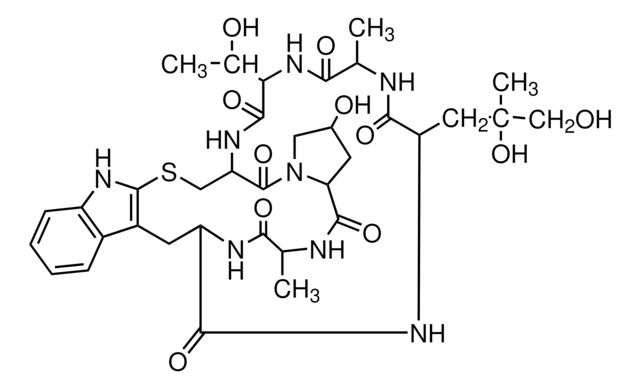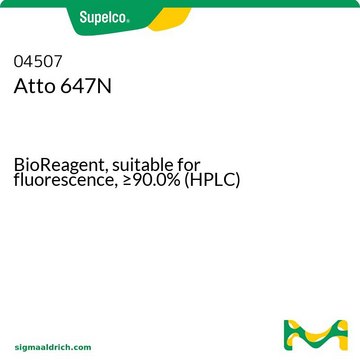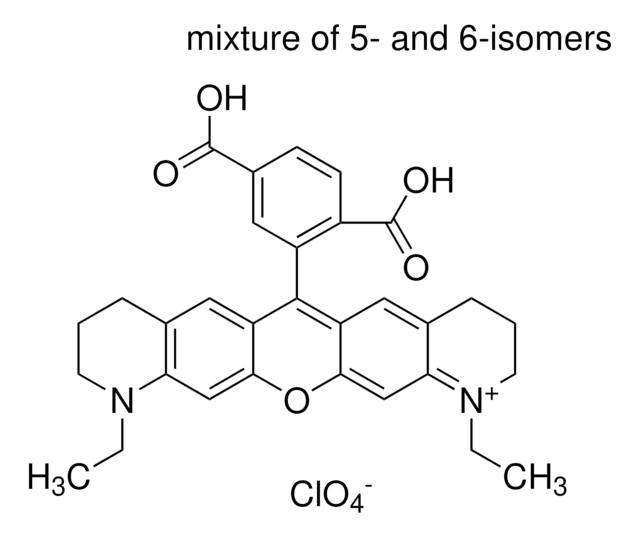94072
Phalloidin–Atto 565
suitable for fluorescence, ≥80.0% (HPLC)
About This Item
Recommended Products
Quality Level
Assay
≥80.0% (HPLC)
form
solid
mol wt
Mw 1394 g/mol
manufacturer/tradename
ATTO-TEC GmbH
λ
in methanol
UV absorption
λ: 562.0-568.0 nm Amax
suitability
suitable for fluorescence
storage temp.
−20°C
General description
find more information here
Storage Class Code
11 - Combustible Solids
WGK
WGK 3
Flash Point(F)
Not applicable
Flash Point(C)
Not applicable
Regulatory Listings
Regulatory Listings are mainly provided for chemical products. Only limited information can be provided here for non-chemical products. No entry means none of the components are listed. It is the user’s obligation to ensure the safe and legal use of the product.
JAN Code
94072-10NMOL:
Choose from one of the most recent versions:
Already Own This Product?
Find documentation for the products that you have recently purchased in the Document Library.
Customers Also Viewed
Our team of scientists has experience in all areas of research including Life Science, Material Science, Chemical Synthesis, Chromatography, Analytical and many others.
Contact Technical Service